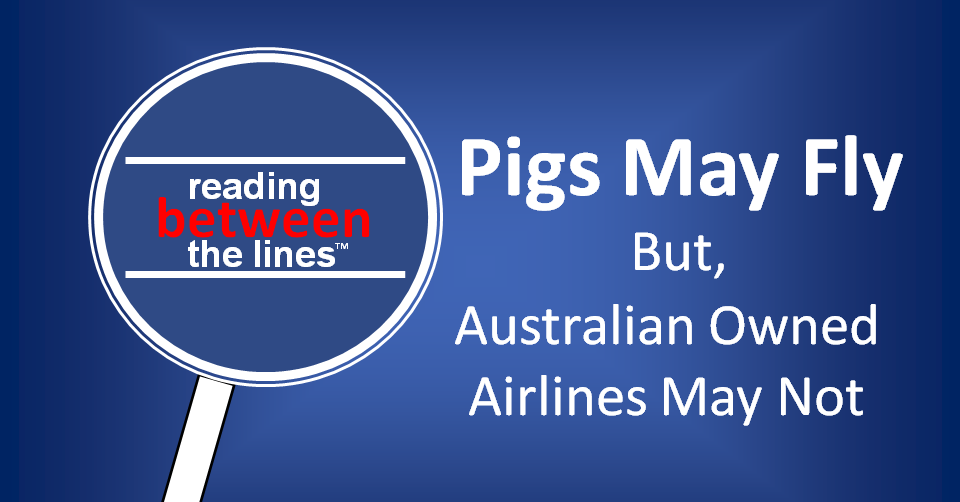
Pigs May Fly.
I have been, and am, a loyal Qantas customer. It is then with some reservation that I view the current turmoil surrounding Qantas, and for that matter Australian airlines in general.
The current tsunami of retrenchments, bad news and general media mayhem enveloping our airline industry does not fill customers with joy or confidence; any more than it does for those quite loyal employees who are left in limbo awaiting their ‘tap on the shoulder.’
In many ways this is a salutary lesson to be careful what we wish for. Brash, cheeky, energetic, enthusiastic, devil-may-care Australian industries have sought for decades to go out and play in global markets.
And, voila! Australia must finally come to grips with the reality of this wonderful, brave new global market place where we have to, perish the thought, compete.
Despite the noisy ramblings and outbursts of economic and political adolescents, and their faux concern, this is what we sought, and this is what we got: competition!
If we want to play out there on the street with the big boys, then we’d better be prepared to play by their rules (such as they have.)
Without doubt, it is nasty, unpleasant, bordering on tragic the way Australian jobs are being tossed on the scrap-heap at present.
But, this is where we are headed, and no (NO) amount of Government policy, taxpayer-funded protection or hand-outs will make any difference in the end.
Where are we headed:
- Australia will not end up with any majority owned airlines.
- The Qantas brand may survive, but if so, and for how long… depends on who the shareholders end up being.
- Our airline industry will become progressively leaner and meaner.
- Competition will drive down air travel costs to users.
- Customer service levels, well…
- Australian air traffic safety will likely, (likely) remain at high standards.
- We will end up paying (and paying more) for many of the freebies we now enjoy, even to ‘spend-a-penny.’
We are like the dog chasing cars, who finally caught one and then wondered what to do.
We always wanted to be members of the global market place.
And now we are.
Be sure to check out the latest post at The Mentors Diary
Connect with me on LinkedIn. I never IDK, and never spam, ever.








